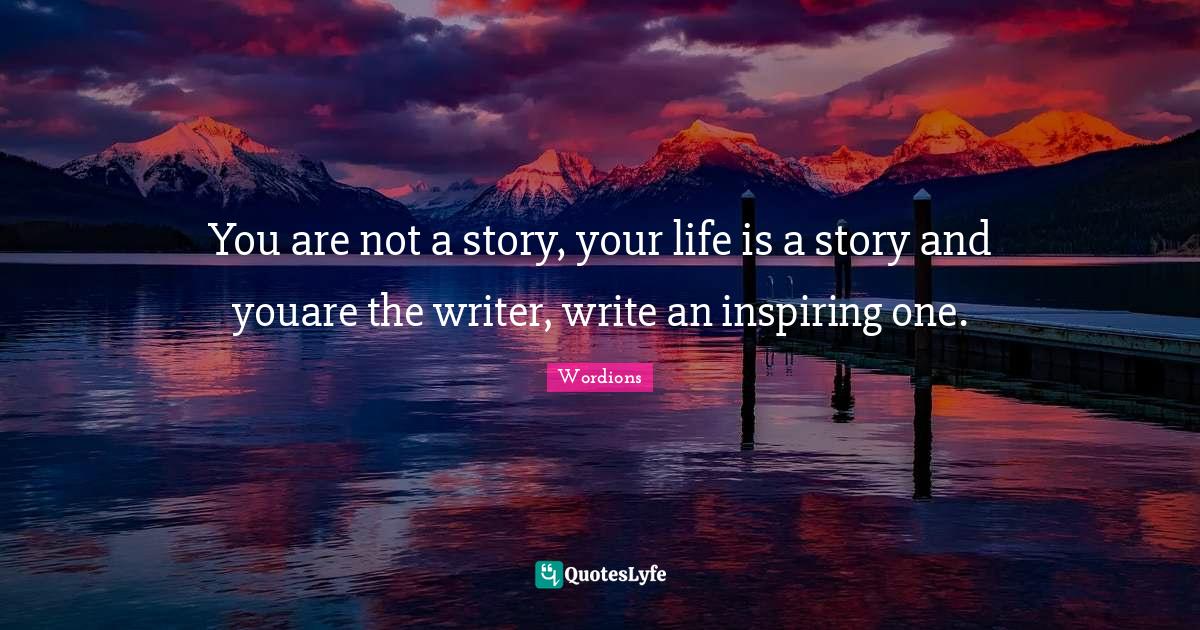
Heptapod B has its own visual syntax (semasiographic), akin to mathematical equations, some sign languages, and the notation of music or dance. It is a totally separate language: the symbols don’t relate to individual spoken words (logographic) or objects (picture writing), and there is no word order, in part because there are no words as such. Heptapod A (spoken) is relatively straightforward and uninteresting it “sounded vaguely like that of a wet dog shaking the water out of its fur”.īut Heptapod B (written) is very different. The story is underpinned by the idea that the structure of a language can affect the cognition of those who use it: Linguistic Relativity. This shapes the telling and curious grammar of her daughter’s story, “I remember what it’ ll be like to…” It is a Borgesian paradox.
#Story of your life download free
The heptapods’ spoken and written languages are unrelated to each other, and the latter has strange properties that affect Louise’s consciousness, specifically her perception of time and free will. But that narrative is interspersed with non-chronological episodes from her daughter’s life. Linguist Dr Louise Banks tells, in linear fashion, how she and colleagues learned the alien language s. Then things escalate.īut this is different. They seem keen to communicate via devices humans nickname looking glasses. They are suitably weird-looking: radially symmetric, with seven eyes and seven limbs on a barrel-shaped body, topped by a puckered orifice, but with no face and no front and back. I've reviewed the others in this collection HERE.Īliens arrive. Note: This review is just the title story. Perhaps it is no coincidence that Ted Chiang is also a technical writer.

The quote above came from a presentation about transforming the Government Digital Service, but the issues of communication (context and audience) that are at the heart of this story are key to technical writing and had echoes in many of the presentations. I read the title short story while away at a conference for technical writers. “ Reading is nothing comprehension is everything”. Sarah Richards I read the title short story while away at a conference for technical writers.

What if men built a tower from Earth to Heaven-and broke through to Heaven's other side? What if we discovered that the fundamentals of mathematics were arbitrary and inconsistent? What if there were a science of naming things that calls life into being from inanimate matter? What if exposure to an alien language forever changed our perception of time? What if all the beliefs of fundamentalist Christianity were literally true, and the sight of sinners being swallowed into fiery pits were a routine event on city streets? These are the kinds of outrageous questions posed by the stories of Ted Chiang. Now, collected here for the first time are all seven of this extraordinary writer's stories so far-plus an eighth story written especially for this volume. Story for story, he is the most honored young writer in modern SF. Campbell Award for Best New Writer in 1992.

Subsequent stories have won the Asimov's SF Magazine reader poll, a second Nebula Award, the Theodore Sturgeon Memorial Award, and the Sidewise Award for alternate history. Ted Chiang's first published story, " Tower of Babylon," won the Nebula Award in 1990.


 0 kommentar(er)
0 kommentar(er)
